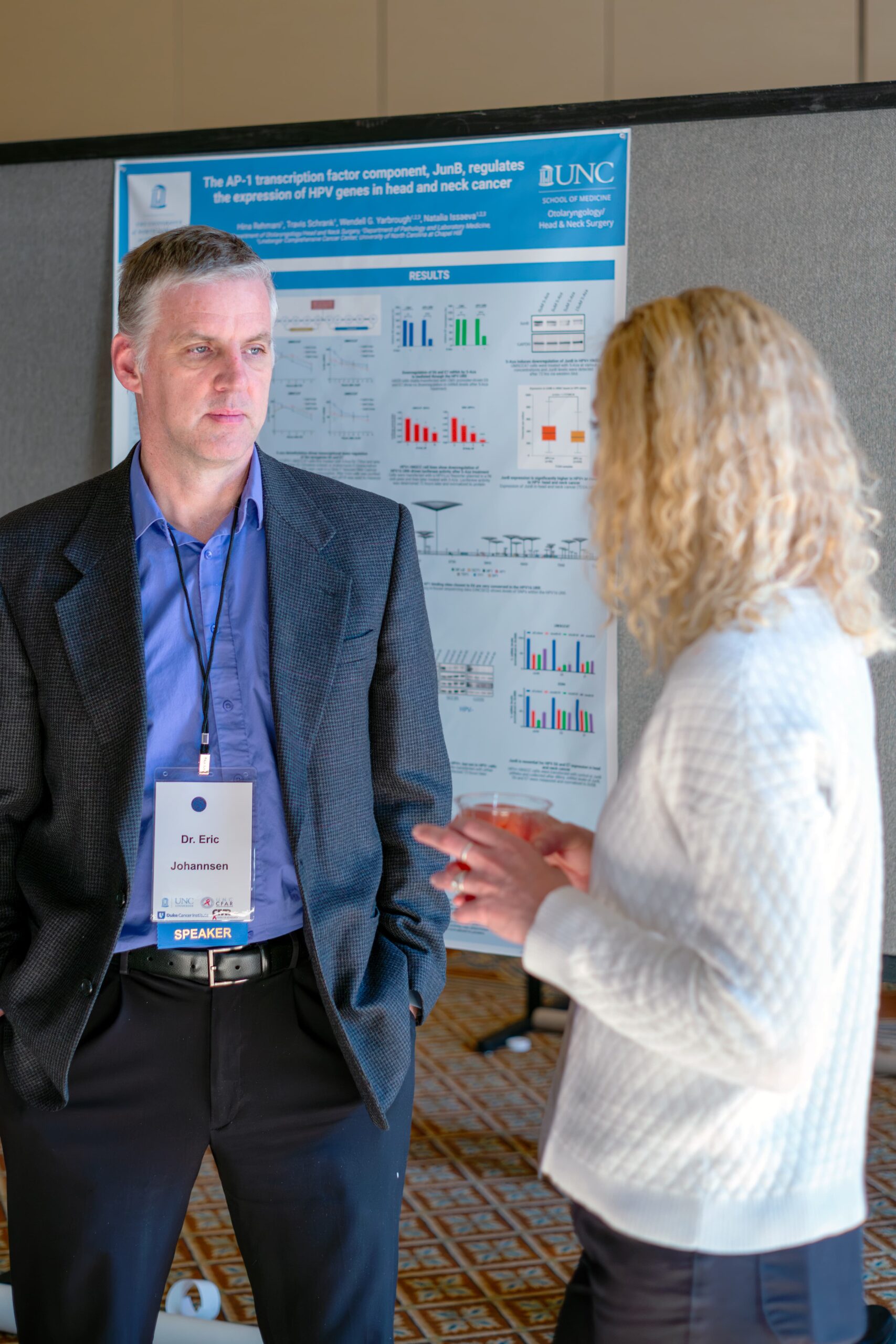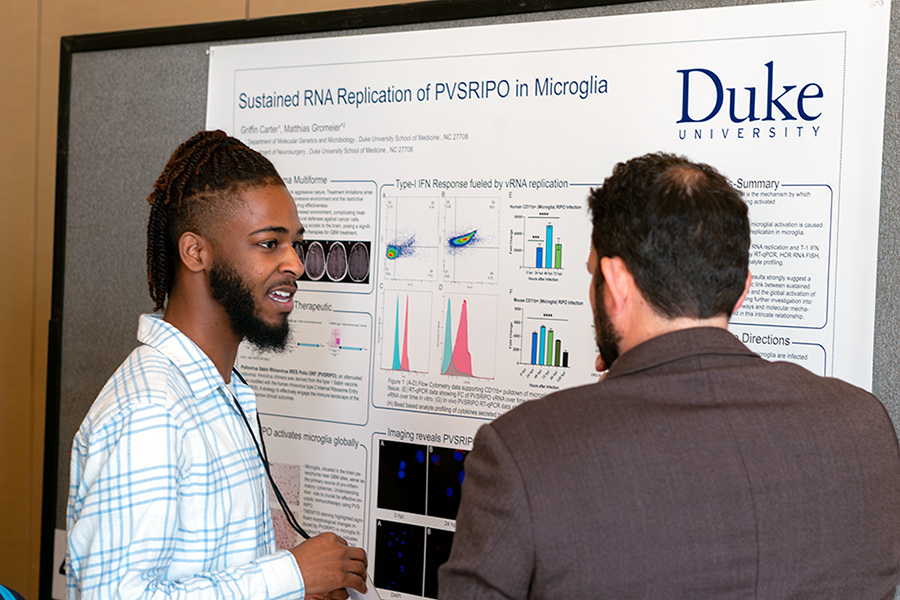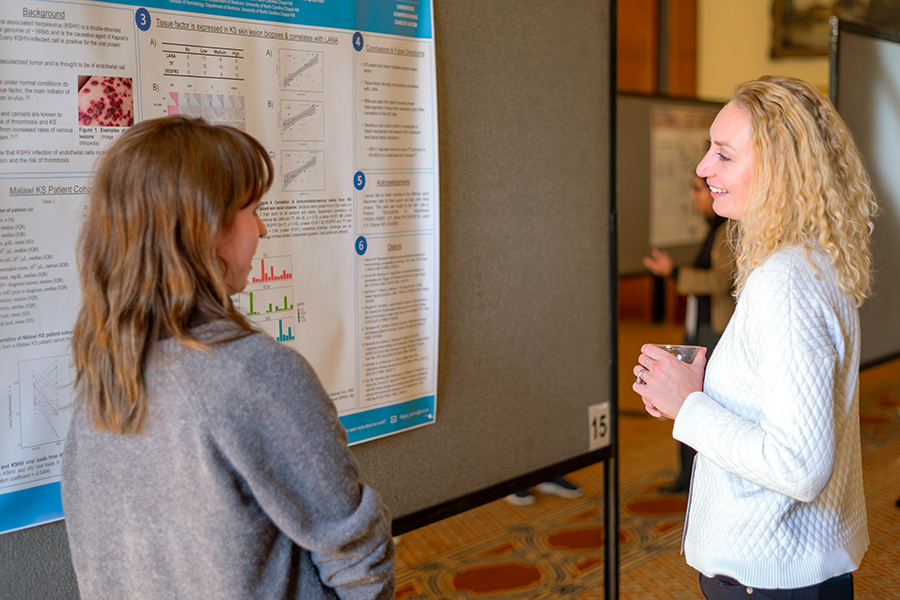 The 13th annual UNC-Duke Viral Oncology and AIDS Malignancy Symposium held at the Carolina Club in December brought together more than 60 researchers, graduate students and postdoctoral fellows to hear talks and view poster presentations on the latest research and insights in the field.
The 13th annual UNC-Duke Viral Oncology and AIDS Malignancy Symposium held at the Carolina Club in December brought together more than 60 researchers, graduate students and postdoctoral fellows to hear talks and view poster presentations on the latest research and insights in the field.
“Cancer currently is the most common cause of death in people living with HIV in North Carolina and the U.S.,” said Dirk Dittmer, PhD, co-leader of the UNC Lineberger virology and global oncology research programs and professor of Microbiology and Immunology. “Viruses account for as much as a quarter of all cancers worldwide, and the majority are caused by the three viruses that are the focus of this annual symposium. We do not know enough about the basic biology of these carcinogens to validate precision treatments for viral cancers or move immune therapeutic approaches into clinical studies.”
The symposium featured three oral presentations:
Denise Galloway, PhD
Fred Hutchinson Cancer Center, Seattle
“Where’s ALTO?”
Paul Lieberman, PhD
Ellen and Ronald Caplan Cancer Center at The Wistar Institute, Philadelphia
“Viral Latency in Cancer: Mechanisms to Therapy”

Eric Johannsen, MD
University of Wisconsin, Madison
“Integrating Epstein-Barr Virus Oncogenes into DLBCL Genetics”
There also were 20 poster presentations, with four earning the distinction of being the best presentations:
Griffin Carter
Duke graduate student
“Sustained RNA Replication of PVSRIPO in Brain Microglia: Unveiling Tumor-Independent Type 1 IFN Activation”
Lauren Haynes
Duke graduate student
“High NFκB activity defines an abortive lytic fate following EBV reactivation from diverse stimuli in Burkitt lymphoma”
 Razia Moorad, PhD
Razia Moorad, PhD
UNC postdoctoral fellow
“Whole-genome sequencing of Kaposi sarcoma-associated herpesvirus (KSHV/HHV8) reveals evidence for two African lineages”
Praneet Sandhu, PhD
UNC postdoctoral fellow
“DDX5 and DDX17 recruit Brg1 to facilitate lytic reactivation of Kaposi’s sarcoma-associated herpesvirus”
The symposium was sponsored by UNC Lineberger, the Duke Cancer Institute, the Center for AIDS Research at UNC, and the Center for AIDS Research at Duke.
